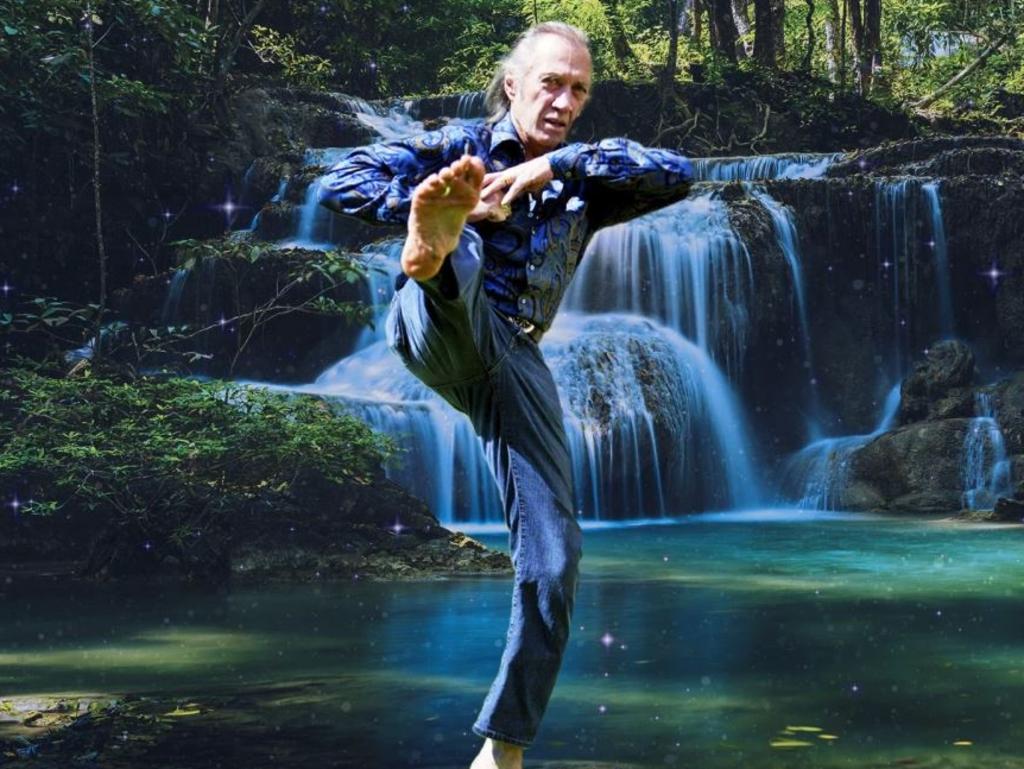I may be an old geezer but I am not ready to retire
It could be when you reach pension age but the true point of ascending into old fogeydom is the moment someone offers you their seat on the bus. So when do you decide to get off?
It started as a simple inner-city bus trip.
I stood in the crowded aisle, attached to the handgrip, when a smiling young woman, no more than 20 and seated nearby, waved to attract my attention.
She mouthed in an exaggerated manner a silent question that didn’t require a lip-reader.
“Would you like this seat?” she asked, pointing in a downward direction.
And there it was. I was officially old.

How did this happen?
Only yesterday I was playing with yellow Tonka trucks and watching F-Troop, thrilling to the shenanigans of useless Fort Courage soldiers and their nemesis, the Hekawi Indians. (They got their name when their ancestors once found themselves hopelessly lost and asked: “Where the hekawi?” Boom Boom.)
It didn’t escape me that the old fogey bus moment happened in the midst of another phenomenon.
At some point midlife you cross an invisible linguistic line where the word “retirement” sneaks into ordinary conversation with shocking frequency, appearing as a sudden bloom of alligator weed in the hitherto pristine garden of your self-esteem.
Natural enough, you might think.
We are shunted through life like food through an earthworm. (If you’re interested, and think worm farming might be on your retirement horizon, the journey from scrap to compost in a household variety Lumbricus terrestris takes one to two weeks.)
And given as members of the human race we share common landmarks, similar physical ailments over time, highs, lows and all manner of mutual experiences, it makes complete sense that the notion of retirement looms inescapably on all of our horizons.
But it remains a distasteful word. One that promises relaxation and pleasure after decades of hard work yet contains within it an odious centre. Think of randomly picking a chocolate out of a box and finding too late it’s a Turkish Delight. More accurately, retirement suggests that rear segment of the worm before – well, there is no other way to put this – the finality of ablution.

As you’d expect, there are complex studies galore into retirement and its impact on your mental and physical health.
One far-reaching European analysis – “Retirement and Cognitive Decline”, published in the Journal of Health Economics in 2017 – yielded some extraordinary results, one among many looking at the pros and cons of the timing of retirement: “ … those who retire as soon as possible (that is, at the time when they become eligible for an early retirement pension) and those who instead retire as late as possible (at the time when they qualify for an old-age pension – when in most cases retirement from the job is mandatory or employment protection ceases to operate). For the former, we find that retirement has positive short-term and no negative long-term effects on cognition; for the latter, retirement has strong negative cumulative effects.”
One of the study’s authors, Guglielmo Weber, a professor of econometrics at the University of Padova in Italy, reportedly said: “There’s some evidence out there that retirement may be bad for cognition, because when you retire, you don’t challenge your brain as much.”
For want of a better description, that seems like a bit of a no-brainer.
But similar conclusions were reached in another 2017 study out of the UK – Effect of retirement on cognitive function: the Whitehall II cohort study – namely, that there was evidence post-retirement of a “decline in verbal memory”.
For those us just experiencing the sudden and unexpected emergence of the retirement word, all this can be a little perplexing, even alarming.
Just a few years ago “retire”, for me, meant many different things.
In football, for example, you “retire” a jersey in honour of a player who made famous a particular number and may have unexpectedly passed away. A car manufacturer might “retire” a particular model of car. Juries “retire” to consider their verdict.
You might “retire” to bed in the evening.
Yes, this utterance may come across as a bit formal and old-fashioned, but it didn’t mean you were turning in for the night and by morning you were having difficulty stringing a few words together and forgotten where you’d put your worm farm.
Now health experts are recommending that you plan for your retirement and put in place a behavioural infrastructure on a par with being retired before your actual retirement. In short, start practising how to bring the plane in to land.
Most of us lose track of what colour rubbish night it is – yellow bin or red or green? – let alone have the presence of mind to activate a parallel life that’s a warm-up for retirement while still juggling the demands of full-time work.
But what if one of your primary ambitions is to retire yourself from the endless, relentless gibber-gabber of other human beings? What if you want to quietly turn off the world for a bit?
In an article last month in The New York Times, experts gave the low-down on how to prep for a satisfying retirement, not one choked with alligator weed.
Alison Moore, chief of the geriatrics, gerontology and palliative care division of the University of California in San Diego, suggested “you should introduce new mentally and physically engaging routines a couple of years before you stop working”.
Dr Moore reiterated that it was important to plan ahead. Delay only made it “harder to take the plunge”.
It was critical to “pivot” from your old life into the new.
“Being open to new experiences before you make this big life change can kind of prep you,” she reportedly said.
Another big takeaway was that people who retired needed a clear sense of purpose that mitigated cognitive decline. In short, stay engaged, keep active, socialise in-person or online. Use it or lose it.
David Richter, professor of survey research in the department of educational science and psychology at Freie Universität Berlin, reportedly said social engagement was critical to brain health in retirement, and not just any old engagement but something with a bit of marrow in the bone.
“Listening to the radio, watching TV is not the same,” Professor Richter said. “We really need to have this back-and-forth of a conversation.”
But what if one of your primary ambitions is to retire yourself from the endless, relentless gibber-gabber of other human beings? What if you want to quietly turn off the world for a bit?
One of the ongoing and seemingly unresolved pillars of the retirement date is the cut-off date itself. When is the ideal age to retire? In Australia you can access the pension when you’re 67 years old, up from the once traditional 65.
But with the increase in average life expectancy, the retirement zone becomes a little hazy.
According to the Australian Bureau of Statistics, in 2020-22 life expectancy for males was 81.2 years for men and 85.3 years for women. Thirty years ago it stood at 74.5 years and 80.4 years respectively. For blokes that’s an extra 6.7 years of weeding.
The solution? Gen Z-ers (people aged between 13 and 28) are pioneering the “micro-retirement”, where they step away from their jobs for months, sometimes years, to recalibrate. Why not travel the world or write that book or train full-time for that marathon while you’ve still got the brainpower and the physical attributes to do so?
At the heart of micro-retirement is work-life balance. And good on you Gen Z-ers for taking care of your health. Although such a fickle workforce, you would think, could cause headaches for employers.
But where does this leave the chumps like me who never entertained the concept of a stop-start micro-career and now face the uncertain and ever-shifting moonscape of retirement as we have traditionally known it? That is, at a certain age you’re asked to pack up the cardboard box with your office belongings and walk into the sunset?

Retirement, and what it means, can be looked at through different ends of the telescope.
Actor Ruby Dee once said: “Well, I didn’t grow up with that word ‘retirement’ as part of my consciousness. I didn’t grow up with professionals that retired. I thought retiring was when you are tired and go to bed. I really don’t believe in retiring as long as you can breathe.”
Then famous veterinarian and author James Herriott said: “There was no last animal treated. When young farm lads started to help me over the gate into a field or a pigpen, to make sure the old fellow wouldn’t fall, I started to consider retiring.”
My brain refuses to entertain the notion of retirement.
I’m still recovering from that moment in the bus when a kindly young lady offered me her seat, rendering me, inescapably, inviolably, an old geezer.





To join the conversation, please log in. Don't have an account? Register
Join the conversation, you are commenting as Logout